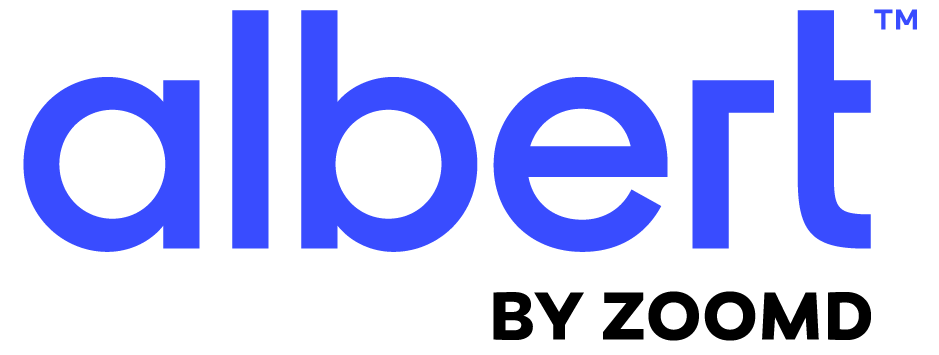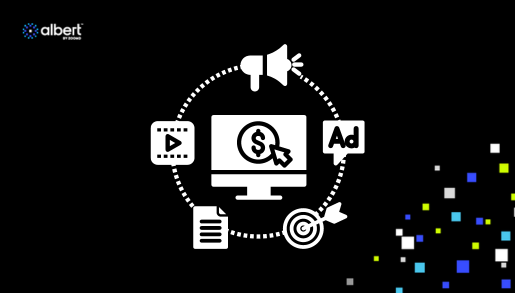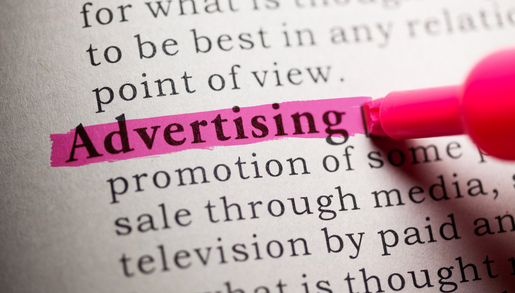You feel a rush of excitement, don’t you? When they click on your ads, go down the funnel, click the buy button. When you see the metrics add up to something you know will get the entire department gasping. It makes all the hours you’ve poured into your campaign worth it, except…
It’s not easy to replicate this success, especially with a constantly changing technological landscape. For some of us, it’s becoming challenging to target the right people, at the right time, with the right message, the right format, the right platform. Sometimes you wish you could click a button and get some validation that you’re doing things right. That you could have some consistency. That it will become a little easier soon.
In a way, that’s what AI is here for. It specializes in making more data-based decisions (that it analyzes automatically), faster, with a bigger return on investment and surprisingly creative solutions. Today, we’ll explore how AI can help you maximize your paid media campaigns.
Let Go of Fear of Replacement
As AI makes more headlines, the fear-based conversation gets bigger. The rumor that AI will replace advertisers feels like the truth. That’s likely why we see advertisers who “don’t give [Albert] enough creative materials to allow it to efficiently optimize, or give it too many restrictions,” as Nir Huberman, our product solutions manager here at Albert, shared with us in an interview.
But this feeling, like many other fear-based feelings, isn’t likely to represent reality in the foreseeable future. As Sagi Weinberg, Albert’s sales director, clarified in another interview, AI might continue replacing some advertising tasks, but advertising and marketing management will remain human-based, including:
=> Developing business models and goals.
=> Deciding on KPI measurement strategies.
=> Leading the way to the next big steps.
Therefore, the best way to maximize AI tech for your paid media campaigns is to see it as your ally and work with it.
For example, the team at Telenor, one of the largest telecom companies in the world, used Albert’s AI powers to supercharge its own and to amplify its capabilities. As a result, its members can more easily turn their vision into results that impress their CEO. Following is what they did.
Turn Weak Spots into Advantages
Being smart and strategic, Telenor’s B2B marketing team set out to test their ad campaigns. Unfortunately, they quickly discovered that creating enough assets for all the tests they wanted to run would break their budget. Who wants to go to management and ask for an increase?
Go explain the details of every test and why it matters.
So, instead, they tested our platform, Albert.
=> Albert mixed and matched countless creative assets.
=> It ran way more tests than its humans could have beforehand.
=> Within two days, team members knew which combinations drive the best results.
=> The team used this data to continually improve their content, creatives, strategies and offers.
Within a year, the team that almost went to management to ask for a bigger budget is now driving:
=> 30% lower cost.
=> 122% year over year lead increase.
=> 423% return on advertising spend.
Of course, one of the biggest weak spots preventing advertisers from reaching better results is that they don’t know how to link the top and bottom of the funnel to each other. AI tech has solutions for this, too.
Connect the Top & Bottom of Your Funnel
AI can perform multivariate, cross-channel tests, process data, conduct ongoing statistical analysis, and figure out typical behavioral patterns for each part of the funnel… all without coffee.
We especially loved seeing this with a food and beverage client. As we previously shared, they had ambitious goals, just like we like:
=> Determine that their branding translates to dollars across 189 counties, and
=> Grow a new ecommerce site.
To help them out, our platform, Albert, combined performance ads with a branding video. It leveraged its collected data to understand when to send viewers down the funnel based on engagement levels.
The result? Much better return on advertising spend.
Discover Unexpected, Profitable Audiences
The ability to run so many tests simultaneously also means AI can easily test different types of audiences. That’s something many of us human campaign managers find challenging to do properly. After all, we have endless daily tasks, including…
=> Structure campaigns.
=> Test out campaigns.
=> Optimize creative assets.
=> Adjust bids.
You name it, we probably do it.
However, AI finds it pretty easy to achieve relevance at scale. It has mountains of data that, somehow, don’t overwhelm or distract it. It doesn’t lead to procrastination, and doesn’t take ages to complete.
It quickly tries thousands of variations – both text-only and text-image combinations – on a variety of…
=> Segments.
=> Keywords.
=> Placements.
AI tools, like Albert, can work efficiently while still rocking existing activities and budgets. As a result…
=> Existing KPIs get sacrificed very little, if at all.
=> At the same time, AI finds new, profitable audiences.
=> It also discovers the best performing keywords and ad variations to serve each of these new, profitable audiences.
As campaign managers, we’re left redefining our conclusions about our creative and marketing strategies in ways we never would have considered before.
Give AI its Freedom, But Stay in Control
Being an autonomous digital marketing ally, a platform like Albert serves highly personalized creatives and messages to increasingly larger audiences. It can act upon its conclusions, without pausing to ask for permission. This allows us advertisers to maximize performance, scale and budgets with little effort and dedicated time.
However, letting AI run free could lead to disastrous results, of course. Therefore, like we said above, humans are still needed. Importantly, advertisers that successfully maximize their AI tech for paid media success…
=> Define campaign goals.
=> Define a measurement strategy and one source of truth.
=> Set guardrails.
Guardrails can include rules to stop or shift activity if certain things take (or don’t take) place. It could also mean monitoring keeping humans at the forefront of campaigns.
At Albert, for example, we provide two human managers for each client. The intention is to…
=> Support our advertiser clients in leading the direction of their campaigns.
=> Monitor campaign progression and verify campaigns go according to human intentions.
=> Protect brands’ safety and health.
As the AI-based world progresses, get a couple of extra managers and a platform that’s trusted by the world’s leading companies on your side, too. Book your demo to see how you can scale in 90% of the biddable universe.



